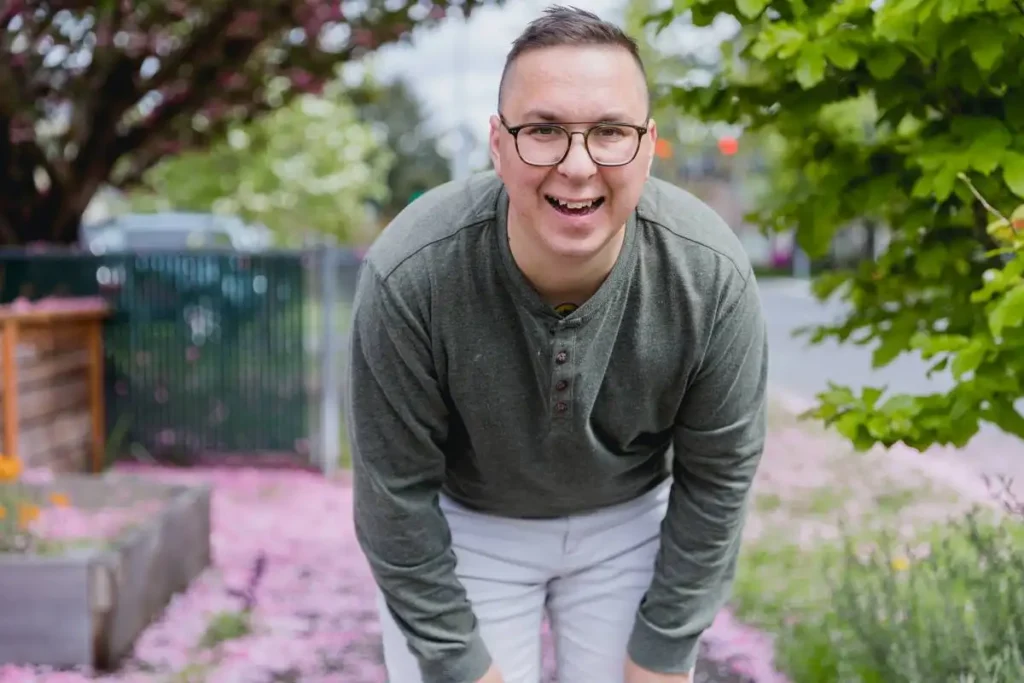Can adults develop autism? This question pops up a lot, and for good reason. We usually think of autism as something that starts in childhood, but life’s not always that simple.
I’ve dug into this topic, and what I’ve found might surprise you. Let’s break it down and see what’s going on with autism in adults.
First things first: autism doesn’t just appear out of nowhere in adulthood. It’s a neurodevelopmental condition, which means it’s present from early childhood. But here’s the kicker – it’s not always diagnosed early on.
Many adults are finding out they’re autistic later in life. It’s not that they suddenly developed autism; it’s more like they’ve been wearing glasses their whole life without realizing it.
Why Are We Seeing More Adult Autism Diagnoses?
There’s been a boom in adult autism diagnoses lately. But why? A few reasons:
- Better awareness: People know more about autism now, so they’re spotting it in themselves or others.
- Improved diagnostic tools: We’ve gotten better at identifying autism across different ages and presentations.
- Changing definitions: The autism spectrum has expanded, including more diverse traits and behaviors.
- Masking and camouflaging: Some people, especially women, have been good at hiding their autistic traits.
Here’s something crucial to understand: autism isn’t just one thing. It’s a whole spectrum of traits and experiences. Some people might have obvious signs from childhood, while others might have subtler traits that only become apparent later.
Think of it like a color palette. Some colors are bold and easy to spot, while others are more nuanced and blend in. Both are still colors, just different shades.
Late-Diagnosed Autism: A Common Story
I’ve talked to a lot of people who found out they were autistic as adults. Their stories often go something like this:
“I always felt different, but I couldn’t put my finger on why. I struggled with social situations and had intense interests, but I thought that was just my personality. It wasn’t until I learned more about autism that things started to click.”
These late diagnoses can be a real lightbulb moment. Suddenly, a lifetime of experiences starts to make sense.
Can Life Changes Trigger Autistic Traits?
Now, here’s where things get interesting. While adults don’t suddenly develop autism, life changes can make autistic traits more noticeable. Think about it:
- Starting a new job
- Getting married
- Having kids
- Moving to a new city
These big life events can shake things up and make autistic traits more apparent. It’s not that autism is new; it’s just that new situations are bringing it to the surface.
Autism Masking
Let’s talk about masking. It’s like putting on a social costume to blend in. Many autistic people, especially women, are pros at this. They might:
- Mimic others’ social behaviors
- Force eye contact even when it’s uncomfortable
- Hide their true interests to fit in
Masking can be exhausting, and as people get older, they might find it harder to keep up. This can make autistic traits more obvious, leading to a late diagnosis.
The Gender Gap in Autism Diagnosis
There’s a big difference in how autism is diagnosed between men and women. Historically, autism was seen as a “male” condition. But that’s changing.
Women often present differently:
- They might have better language skills
- Their special interests might be more socially acceptable
- They’re often better at masking their traits
This means many women go undiagnosed until adulthood. It’s not that they developed autism later; it’s that it was missed earlier.
The Impact of a Late Autism Diagnosis
Finding out you’re autistic as an adult can be a mixed bag. On one hand, it can explain a lot:
- Why certain social situations have always been tough
- Why do you have such intense interests
- Why you might be sensitive to certain sensory experiences
But it can also bring up some tough emotions:
“Why didn’t anyone notice this sooner?”
“How different would my life have been if I’d known?”
“What does this mean for my future?”
The Upsides of a Late Autism Diagnosis
It’s not all doom and gloom, though. Many people find a late autism diagnosis empowering:
- Self-understanding: Finally, there’s an explanation for lifelong experiences.
- Community: Connecting with other autistic adults can be incredibly validating.
- Targeted support: Knowing you’re autistic means you can seek out strategies that work for neurodivergent brains.
- Self-advocacy: With a diagnosis, it’s easier to ask for accommodations at work or in other areas of life.
The Diagnostic Process
So, how do you get diagnosed with autism as an adult? It’s not always straightforward, but here’s the general process:
- Self-reflection: Recognizing traits in yourself that align with autism.
- Screening: Taking online tests or talking to a GP about your concerns.
- Referral: Getting sent to a specialist for a full assessment.
- Assessment: A comprehensive evaluation of your developmental history and current behaviors.
- Diagnosis: If appropriate, receive an official autism diagnosis.
It’s worth noting that getting diagnosed as an adult can be challenging. Many healthcare providers are more familiar with childhood autism, so you might need to seek out specialists who work with adult autism.
Living with Adult Autism: Strategies for Success
If you’ve been diagnosed with autism as an adult, or you think you might be on the spectrum, here are some strategies that can help:
- Embrace your strengths: Autistic brains often have unique abilities. Lean into these!
- Create routines: Structure can be really helpful for managing daily life.
- Find your tribe: Connect with other autistic adults who get where you’re coming from.
- Be open about your needs: It’s okay to ask for accommodations or explain your preferences to others.
- Manage sensory input: If you’re sensitive to certain stimuli, find ways to control your environment.
- Develop coping strategies: Learn techniques for handling social situations or managing stress.
Remember, these are just starting points. What works for one person might not work for another. It’s all about finding what fits for you.
Changing Perspectives on Autism
There’s a growing movement that views autism not as a disorder, but as a natural variation in human neurology. This neurodiversity perspective says that autistic brains aren’t broken; they’re just different.
This shift in thinking can be really powerful, especially for adults discovering their autism later in life. It moves the conversation from “What’s wrong with me?” to “How does my brain work differently?”
Autism and Relationships
Relationships can be tricky for anyone, but autistic adults might face some unique challenges:
- Reading social cues
- Understanding unwritten social rules
- Managing the intensity of emotions
- Balancing alone time with social time
But here’s the thing: autistic people are fully capable of deep, meaningful relationships. It might just look a bit different from what’s considered “typical.”
For autistic adults in relationships, open communication is key. Being clear about your needs and limitations can help partners understand and support you better.
Autism in the Workplace
Work can be a mixed bag for autistic adults. On one hand, many autistic people have incredible skills that make them valuable employees:
- Attention to detail
- Ability to focus intensely
- Out-of-the-box thinking
- Loyalty and dedication to tasks
But there can be challenges too:
- Office politics and social norms
- Sensory overload in busy environments
- Changes in routines or expectations
- Communication misunderstandings
If you’re an autistic adult in the workplace, know your rights. Many countries have laws protecting neurodivergent employees and requiring reasonable accommodations.
The Role of Support in Adult Autism
Support can make a huge difference for autistic adults. This might include:
- Therapy: Cognitive Behavioral Therapy (CBT) or other forms of counseling can help with anxiety, depression, or social skills.
- Support groups: Connecting with other autistic adults can provide validation and practical tips.
- Occupational therapy: This can help with sensory issues or daily living skills.
- Medication: In some cases, medication might be recommended for co-occurring conditions like anxiety or ADHD.
The key is finding support that respects your neurology and helps you thrive as an autistic individual, not change who you are.
Embracing Your Autistic Identity
If you’re an adult who’s recently discovered you’re autistic, or you suspect you might be, remember this: autism is a part of who you are, but it doesn’t define you entirely.
It’s okay to take time to process this information. Some people feel relief, others feel confusion or anger. All these feelings are valid.
As you move forward, try to focus on self-understanding and self-acceptance. Autism brings challenges, sure, but it also brings unique perspectives and abilities. Embrace your autistic identity and find ways to thrive as your authentic self.
Wrapping It Up
So, circling back to our original question: can adults develop autism? The short answer is no. Autism is present from early childhood, even if it’s not diagnosed until later.
What we’re seeing isn’t adults suddenly becoming autistic, but adults recognizing and understanding their lifelong autistic traits. It’s like finally putting on the right pair of glasses and seeing the world clearly for the first time.
If you’re an adult wondering about autism, know that you’re not alone. Many people are on similar journeys of self-discovery. Whether you seek a formal diagnosis or simply learn more about neurodiversity, understanding yourself better can be a powerful thing.
Remember, autism in adults is real, valid, and more common than you might think. It’s never too late to learn about yourself and find the support you need to thrive.
Can adults develop autism? No, but adults can certainly discover their autism, and that discovery can be the first step on an exciting journey of self-understanding and growth.







